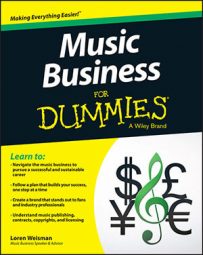Everyone has different abilities, needs, and requirements in the music business. Connecting and working with the right team, studio, and players can make or break a recording. When finding the right studio, producer, engineer, and musicians, it always comes back to your due diligence.
Always double-check and find the reviews, follow up with past clients, and put in the time to research the people who are about to become part of your recording.
Don’t worry about a big name producer
It is not about the big name anymore or trying to get this musician or that musician to play with or produce you. The same goes for the studio where you’re recording. Don’t focus all your energy and too much of your budget on time in the same studio where a major name recorded. Just because you both use the same studio doesn’t mean you’ll see the same results and same profits.
Comparing your situation with their results
Keep the following thought in your mind regardless of where you choose to record or whom you choose to work with, from producers to engineers to arrangers and session musicians: Make sure they have the ability to give you what you need with your budget, your ability, your team, and your time frame in mind.
This recording is your baby. It’s your project and regardless of how good someone may be or how great some studio may be, if it doesn’t feel right to you, it’s not the right person or place.
Mixing up home studio and pro studio tracks
Do you know how to record? A mixture of recording at home and in a studio can work well for you as well as save you a great deal of money.
This again comes down to finding the right producer, studio or engineer that can work with you and tracks that you might bring in from home. There is no rule that all the music has to be done all at once and all under one roof.
Other options include having a producer work with you at home instead of a studio to gather as many tracks as possible and then allowing him or her to mix at their studio. The better you can be captured and the more comfortable you are while recording, the better the music will be.
Picking the right studio, engineer, and producer
A studio is much more than a room, microphones, and gear. There are many different formats from the Pro-Tools to Reason, Ableton Live to Apple Logic Pro and Audacity and many others. These are some of the top and most-recognized software programs used in the music business today. When it comes down to the studio, a lot of it has to do with the engineer and how he knows the tools around him.
Look at the rooms and the gear, talk about the budget, the time frames, and what you need to have done. Ask for project averages to get a sense of how long it will take from setting up to the average mix down times. Ask if they have session musicians who might work well with your project if your project requires it. And make sure you compare all this information and what’s being offered with other studios.
Using session musicians recommended by the studio can oftentimes save you that much more time and money. Because these musicians have either worked with the studio or the producer before, you get the best performances out of them, that much faster.
Listen, don’t look
Don’t get caught up in the size of the room, or the size of the mixing console, or the number of different isolation rooms. If a studio can capture an amazing drum sound in a smaller room because it has great microphones and an excellent engineer, a small room can be just as powerful as a humongous room.
Digital versus tape
Getting the most out of your time in the studio while staying in budget is key. Some studios still offer tape, but understand that with cutting on tape, doing overdubs, mixing, and everything else, tape is going to take a lot longer.
Go digital with your recording. There are many audiophiles who will tell you how much of a difference that tape makes, but it’s really hype. A great engineer who knows how to place microphones and mix well can give you that thick, rich, warm sound that most associate with something being recorded on two-inch tape.
Choosing the producer, co-producer, or producer/engineer
If you choose a producer first, they often have their own studio or a studio they favor. Some producers can also work as engineers, and some producers like to have an engineer with them. You may want to cover some of the producing yourself and might need a producer only in a secondary fashion.
Finding the right backup musicians or hired guns
After you lock in your producer, ask them if they have a great call list of players who they know well, have worked with a number of times, and can get it done right, quickly, and on time. Look to your producer or studio to help you find those players for the best results. Make sure you get a sense of what these musicians have done and examples you can listen to.
If you’re looking for a musician who the studio or producer doesn’t have a recommendation for, again, go back to your due diligence and
Don’t get caught up in a pretty website or social media.
Do look to see what others have posted about them.
Don’t be overly impressed about amazing videos that show blazing chops.
Do look for references from people who say they can play what’s needed for the song.
Don’t get sold on how good they look or how good their gear is.
Do get more comfortable when other producers or studios say they act professional.

